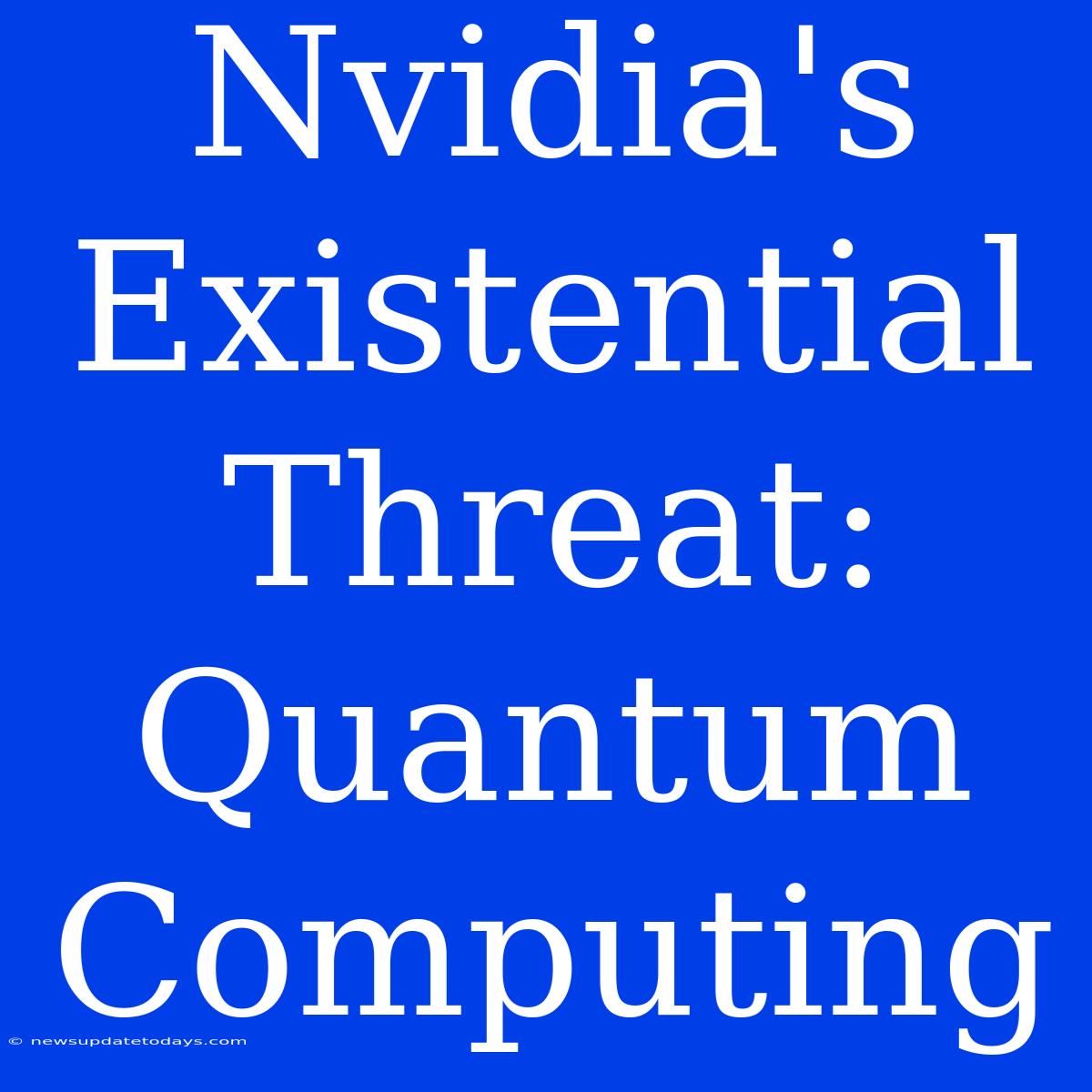Nvidia's Existential Threat: The Looming Shadow of Quantum Computing
Nvidia, the undisputed king of GPUs, faces a potential existential threat from a seemingly distant competitor: quantum computing. While still in its nascent stages, quantum computing's potential to disrupt industries, including Nvidia's core markets, is undeniable. This article explores the ways quantum computing could challenge Nvidia's dominance and what the company might do to mitigate this emerging risk.
The GPU Empire Under Siege
Nvidia's success is built on the unparalleled processing power of its GPUs, crucial for everything from gaming and AI to high-performance computing (HPC). However, the rise of quantum computing introduces a fundamentally different computing paradigm that could render current GPU architectures obsolete for certain tasks.
Specifically, quantum computers excel at tackling problems currently intractable for even the most powerful supercomputers. This includes tasks vital to several key Nvidia markets:
-
Drug Discovery and Materials Science: Simulating molecular interactions is computationally expensive. Quantum computers promise exponentially faster simulations, potentially eliminating the need for the massive GPU clusters currently used.
-
Cryptography: Many encryption methods rely on the difficulty of factoring large numbers. Quantum computers, with algorithms like Shor's algorithm, could break these encryptions, rendering current security systems vulnerable. This directly impacts Nvidia's data center business, which heavily relies on secure data processing.
-
Artificial Intelligence: While GPUs are currently integral to AI development, quantum machine learning algorithms could offer significant speed and efficiency improvements in the future. This could lead to a shift in the hardware landscape supporting AI research and deployment.
Navigating the Quantum Uncertainty
The threat isn't immediate. Quantum computers are still in their early stages of development, facing significant technological hurdles. However, the pace of innovation is rapid. Ignoring this potential disruption would be a grave mistake for Nvidia.
Nvidia's Potential Responses:
-
Investment in Quantum Technologies: Proactive investment in quantum computing research and development could allow Nvidia to adapt and potentially integrate quantum capabilities into its future product lines. This could involve partnerships with quantum computing companies or building its own quantum computing expertise.
-
Hybrid Computing Solutions: Nvidia could focus on developing hybrid systems that combine the strengths of classical computing (GPUs) with the unique capabilities of quantum computers. This approach could leverage the current GPU infrastructure while gradually incorporating quantum technologies.
-
Software and Algorithm Development: Developing software and algorithms optimized for both classical and quantum computers will be crucial. This ensures Nvidia's software ecosystem remains relevant even in a world with widespread quantum computing adoption.
The Future is Quantum (Eventually)
The future of computing is undeniably intertwined with the development of quantum computing. While Nvidia's current dominance is secure, the company must proactively address the potential disruption posed by this emerging technology. Failing to do so could lead to a significant shift in the market landscape, challenging Nvidia's position as the undisputed leader in accelerated computing. The coming decades will be critical in determining whether Nvidia can successfully navigate this quantum leap or become a victim of its own success.

